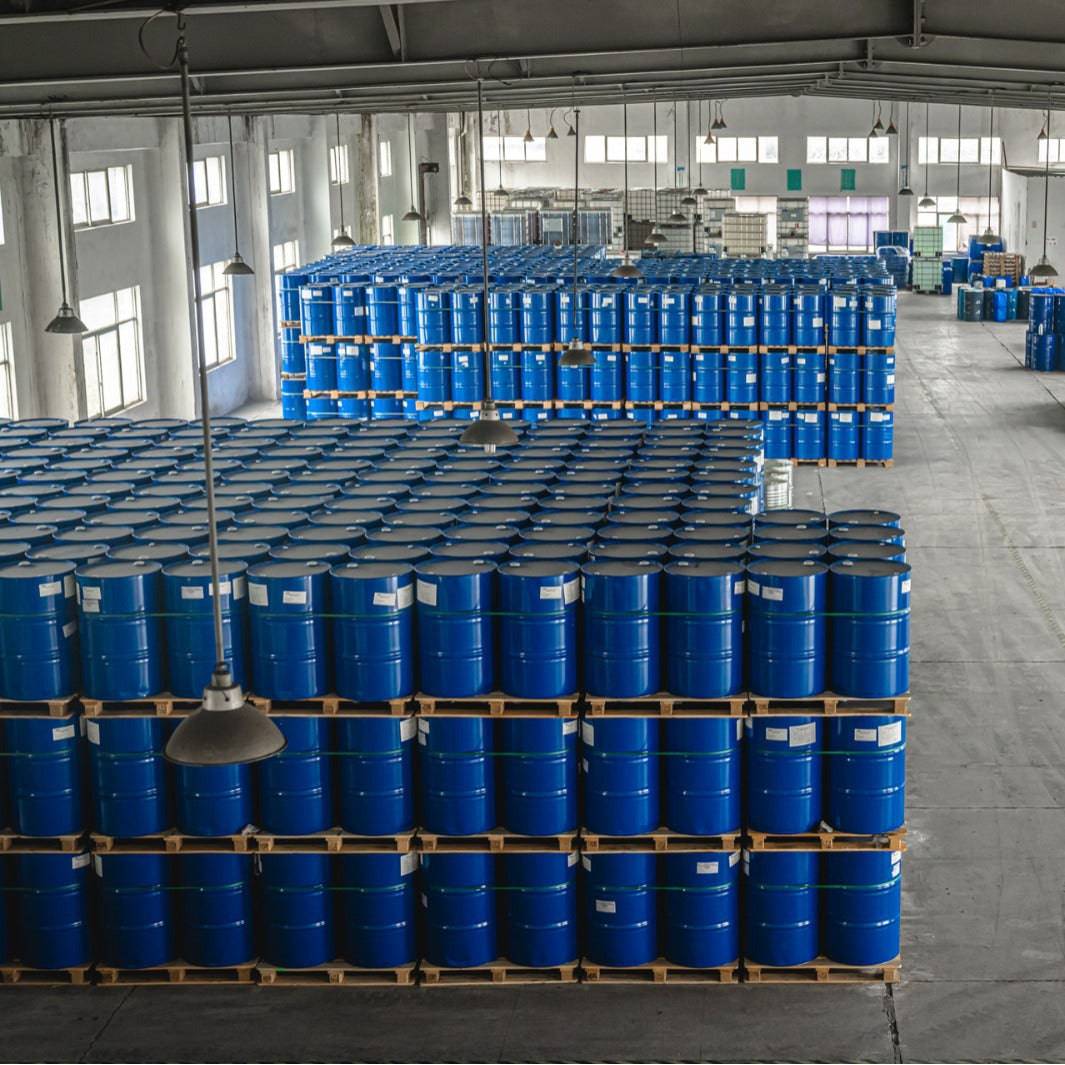Top Advantages of Using Silicone Oil as a Heat Transfer Fluid in Precision Machinery
Top Advantages of Using Silicone Oil as a Heat Transfer Fluid in Precision Machinery
Blog Article
Why Picking the Right Heat Transfer Fluid Is Essential for Optimal System Performance
Choosing an appropriate warmth transfer liquid is a pivotal decision that can significantly affect system effectiveness and functional prices. The appropriate fluid not only improves thermal performance however also makes sure longevity and dependability of devices, lowering the threat of pricey downtimes. Key buildings such as thermal conductivity, thickness, and thermal security needs to be thoroughly evaluated to enhance energy intake and stay clear of prospective failings. As the implications of this selection expand far beyond immediate efficiency, understanding the nuances of liquid selection ends up being important for any person wanting to attain optimum system effectiveness. What variables should be focused on in this crucial decision-making procedure?
Value of Heat Transfer Fluids
What function do warmth transfer fluids play in commercial processes? Warmth transfer fluids are crucial for the reliable transfer of thermal energy within various commercial systems. They help with the activity of heat from one place to an additional, making sure that processes operate within ideal temperature level arrays. Their key function is to soak up heat from a resource, such as a heating system or reactor, and supply it to an end user, like a warmth exchanger or purification column.
The choice of warmth transfer fluid can dramatically affect energy safety, efficiency, and tools long life. Fluids need to can standing up to heats and pressures without degrading, in addition to exhibit minimal volatility and low poisoning. Their performance straight impacts not only the performance of the system however additionally its operational costs.
Additionally, warmth transfer fluids play a crucial function in preserving procedure control, making sure that temperature changes are decreased. This is particularly essential in sensitive applications such as drugs and petrochemicals, where exact temperature management is vital. On the whole, the value of choosing the right warm transfer fluid can not be overemphasized, as it is important to enhancing industrial processes and boosting overall system performance.
Secret Feature to Take Into Consideration
When choosing a warmth transfer liquid, which key residential or commercial properties should be prioritized to make sure ideal efficiency? Most importantly, thermal conductivity is important; a liquid with high thermal conductivity will effectively move heat, decreasing energy loss. In addition, the certain warmth ability of the liquid is crucial, as it figures out just how much energy the fluid can keep and launch, influencing total system responsiveness.
Thickness is an additional substantial property to think about, as it influences the liquid's circulation features; lower viscosity liquids are normally preferred for easier circulation and reduced pumping energy. The fluid's temperature level array is equally important; it has to perform efficiently within the functional temperature levels of the system without vaporizing or breaking down.
Chemical stability is important to protect against destruction with time, which can result in system inadequacies and prospective failures - propylene glycol. Compatibility with system products should not be ignored to stay clear of corrosion or damages to components. Think about the environmental influence and security account of the liquid, as regulations and sustainability goals increasingly affect fluid choice. By focusing on these vital properties, one can choose a warmth transfer liquid that boosts system durability and dependability.

Effect On System Performance
The selection of warm transfer fluid directly influences system effectiveness, influencing both energy intake and operational performance. A liquid's thermal conductivity, thickness, and warmth capability play crucial roles in exactly how effectively it transfers warm within a system. Ideal fluid properties make certain that warm is absorbed and dispersed effectively, decreasing power losses and boosting the overall performance of the system.

In addition, the compatibility of the liquid with system products can substantially affect efficiency. A liquid that creates deterioration or degradation can cause leakages and system failings, even more lessening performance. In summary, the ideal warmth transfer fluid not just takes full advantage of energy effectiveness and reduces prices however also improves the reliability and long life of the system, making it a crucial factor to consider for designers and decision-makers in thermal administration applications.
Typical Sorts Of Heat Transfer Fluids
A range of warm transfer fluids are generally utilized in thermal management systems, each with distinctive homes matched to certain applications. Water is among one of the most widely utilized warmth transfer fluids due to its high details heat capacity, inexpensive, and accessibility. Nonetheless, its cold factor restricts its usage in low-temperature applications.
Thermal oils, often stemmed from petroleum, are an additional popular option, particularly in high-temperature systems. These liquids can run at elevated temperatures without evaporating, making them excellent for commercial applications. Nonetheless, they may have constraints concerning thermal stability.
Refrigerants, used mainly in cooling down systems, have unique thermodynamic residential or commercial properties that permit for efficient warmth transfer at low temperatures. Their option Continue is essential to ensure performance and conformity with ecological regulations.

On top of that, phase modification products (PCMs) are getting traction for their capacity to take in and release considerable quantities of warmth during stage shifts, providing a special option for thermal energy storage space. Each fluid's certain qualities must be assessed for optimal efficiency.
Best Practices for Choice
Selecting the proper heat transfer fluid includes mindful factor to consider of a number of key factors that straighten with the particular needs of the application. Examine the operational temperature level range. The liquid has to maintain its residential properties and efficiency throughout the designated temperature level range. Second, think about the liquid's thermal conductivity, which impacts heat transfer rates; greater thermal conductivity typically brings about enhanced efficiency.
Furthermore, examine the liquid's viscosity, as it influences pumping power and overall system effectiveness. Lower viscosity liquids usually reduce energy intake throughout blood circulation. Compatibility with system materials is another critical element; guarantee that the liquid does not create corrosion or degradation of pipes and parts.
Following, consider the fluid's security and long life, specifically in high-temperature applications. A secure liquid lessens upkeep and replacement expenses. Ecological and security laws should direct your selection procedure, highlighting non-toxic and eco friendly options when possible.
Final Thought
Finally, choosing the ideal warm transfer fluid is crucial for attaining ideal system efficiency. The ideal More Bonuses fluid improves thermal conductivity, reduces energy losses, and advertises equipment durability, eventually leading to enhanced system integrity and performance. Comprehending the vital buildings and impacts of different liquids on system efficiency is vital for educated decision-making. Abiding by best practices in liquid choice can lead to substantial lasting price savings and functional effectiveness.
Heat transfer fluids are necessary for the reliable transfer of thermal energy within various commercial systems. In addition, the details warm ability of the fluid is important, as it identifies exactly how much energy the fluid can store and release, impacting total system responsiveness.
Think about the environmental influence and safety and security account of the liquid, as guidelines and sustainability goals progressively influence liquid choice - silicone oil. A fluid's thermal conductivity, thickness, and warm ability play crucial functions in how properly it transfers warm within a system. Water is one of the most widely made use of warm transfer liquids due click for info to its high particular heat capability, low expense, and accessibility
Report this page